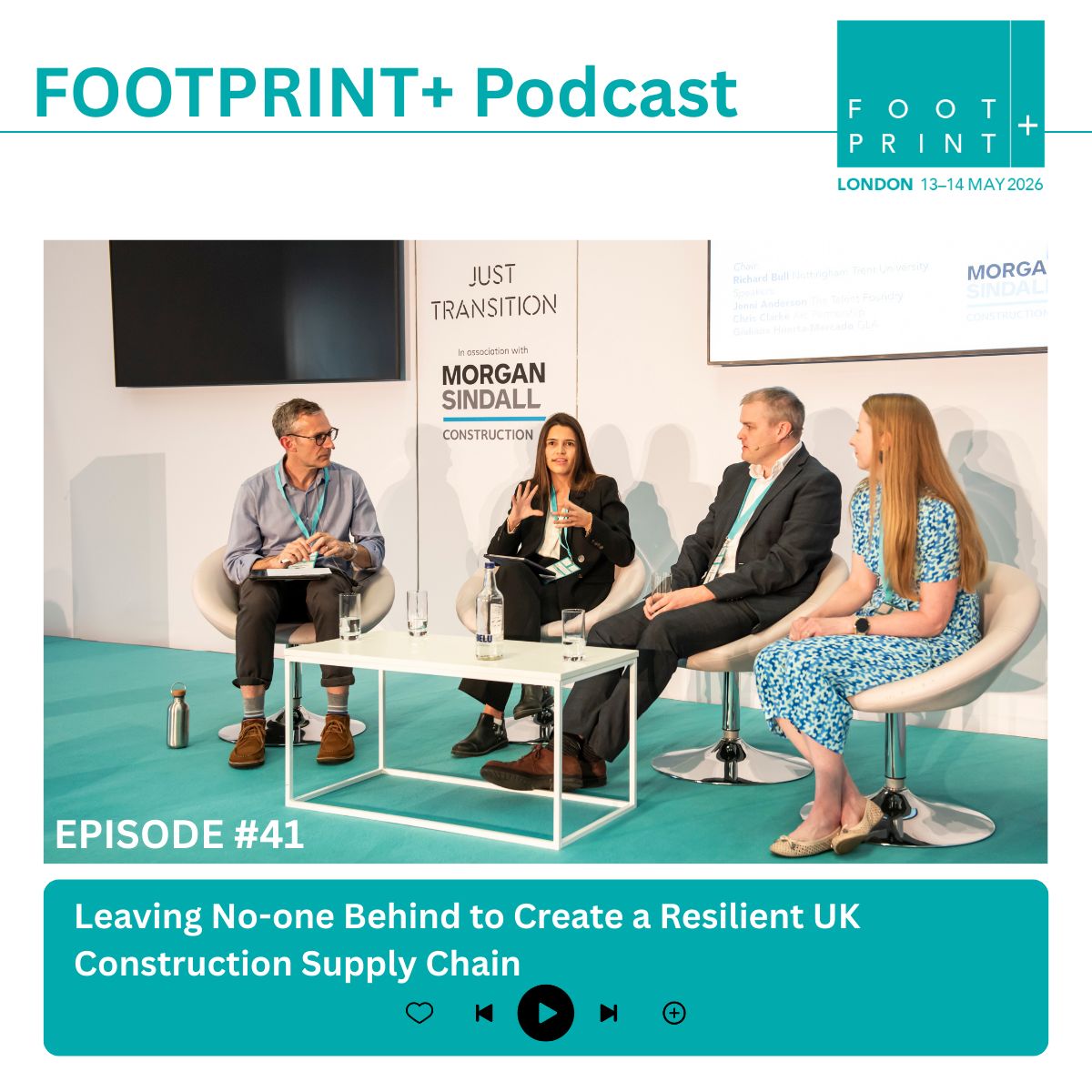5 November 2025 Leaving no-one behind in construction opportunities

The Talent Foundry joined sector experts on a panel to discuss building resilience and skills in construction
Building a sustainable and resilient construction supply chain is essential for the UK’s economic security and long-term infrastructure goals. However, sector leaders stress that this must not come at the expense of workers and vulnerable groups.
Our purpose at The Talent Foundry (TTF) is to support connections between young people and industry and improving equality of opportunity within the construction industry can help us to do this.
During the FOOTPRINT+ conference in London, TTF Chief Executive, Jenni Anderson, was invited by our supporters, Morgan Sindall Construction, to join a panel in collaboration with speakers from Greater London Authority, SCAPE and Nottingham Trent University.
The discussion, which has been recorded as podcast, considered how to bridge the gap between education and employment, build skills for sustainable job roles and tackle inequality in career opportunities and progression.
Challenges in diversity and inclusion
The panel, hosted by Richard Bull (Deputy Dean at Nottingham Trent University) began with a discussion on the barriers to inclusion in the construction sector, and where working in partnership can produce strategies and frameworks to ensure that nobody is left behind as the job and skills market changes.
According to panellist Guliana Huerta-Mercado, of the Greater London Authority, in London, for example, women make up only 15% of the construction workforce. People from Black, Asian and minority ethnic backgrounds account for just 25%, despite representing 39% of the city’s population. Young people comprise only 18% of the sector, and for those from minority ethnic backgrounds, it’s 3.4 times harder to secure a role compared with white applicants.
Guliana, who leads initiatives tackling labour market inequalities in London’s priority sectors, explained that early career inspiration is heavily influenced by role models in the community. She said:
A lack of career advice and work experience opportunities means that young people often don’t know what pathways exist.
The Talent Foundry’s role in unlocking opportunities
TTF works directly with schools and employers to tackle these barriers. Last year alone, we engaged with over 600 schools across the UK. As Jenni explained:
Teachers are willing to engage with employers but don’t always have the connections or capacity. TTF bridges that gap, helping young people build the skills and confidence they need.
We run workshops in classrooms and workplaces nationwide, enabling students to network with local employers, gain meaningful work experience and build key employability skills and confidence. Within the construction sector we can give students a real-world view of what working life is like and develop programmes that replicate real workplace briefs such as developing net zero projects or retrofitting schools and hospitals.
TTF also works to solve the issue of young people not being able to access work readiness skills. Jenni added:
Together, we can provide a much more robust offer to schools that can help young people see that these opportunities - this type of career, these roles, these industries - are for them.
Cross-sector collaboration
The discussion at FOOTPRINT+ highlighted that size limitations within SMEs (small and medium enterprises) can hinder their ability to engage wholeheartedly in careers interventions, and a lack of resources may mean they can’t get involved in building local talent pipelines.
Chris Clarke, Strategy & Performance Director at Arc Partnerships, underlined the challenges that SMEs face in creating the space to deal with wider inclusion issues.
Working closely with large organisations and SMEs, particularly those within a supply chain, enables us to leverage a collaborative approach. Jenni highlighted that smaller businesses, which may lack the resources to provide structured careers support, can still make a difference as part of a wider programme.
Skills for the future
Jenni explained that post-COVID shifts in work mean young people need to be more adaptable than ever. Rapid industrial shifts can leave marginalised communities behind, and businesses need to commit to a ‘Just Transition.’ She said:
The world of work is a really exciting place to be… we have to be the people that demonstrate that to young people.
The optimal collaborative approach, according to Guliana, extends to targeted mentoring programmes and sector-wide initiatives designed to provide transparency, track progression, and ensure that opportunities reach the areas that need it most.
Despite the challenges in improving diversity in construction, the panellists agreed that the industry has immense potential for social mobility, skills development, and inclusive growth.